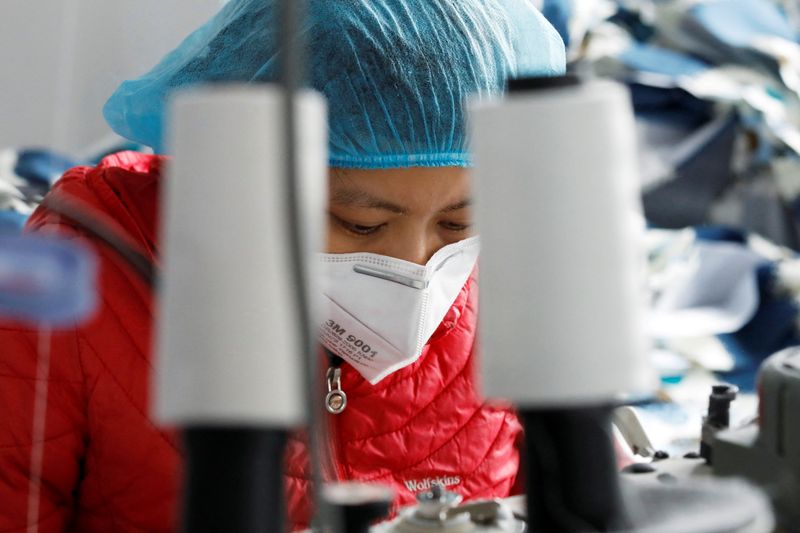By Francesco Guarascio
HANOI (Reuters) - Vietnam's large trade surplus with the United States may reignite tensions with Washington in the event of a second Trump presidency, analysts warned, as exports of solar panels and other sensitive electric products boom.
Super Tuesday results last week confirmed the November U.S.-election is set to pitch incumbent Joe Biden against Donald Trump who in his first presidential term was less lenient than Biden towards trade imbalances.
Last year, the Southeast Asian manufacturing hub posted a $104 billion trade surplus with Washington, lower only than China, the European Union and Mexico, U.S. data show.
"Vietnam (is) most exposed to U.S. protectionism," said BMI, a research firm and part of the Fitch Ratings group.
It noted that among countries with no free trade deals with Washington, Vietnam was the most reliant on exports of electrical equipment and other "goods that are more likely to be targeted by tariffs in the event of a second Trump administration".
Electronics, such as computers or smartphones, accounted for about 36% of Vietnam's $114 billion-worth of exports to the U.S. last year.
Of this, nearly $5 billion, up from $3.2 billion a year earlier, was in solar panels, which Washington monitors closely for risks of transhipment from China and use of raw materials from Xinjiang, which are both subject to sanctions.
Rights groups accuse China of abuses of ethnic Uyghurs in Xinjiang which Beijing vigorously denies.
A Hanoi-based Western diplomat said Vietnam's trade surplus would be the biggest risk in its relations with Washington with Trump back in the White House.
But he expected no changes in U.S. policy of supporting Vietnam's semiconductors industry, which Biden has pushed as part of its "friendshoring" policy to reduce companies' exposure to China risks.
Vietnam's government did not reply to a request for comment on the matter.
There may also be benefits from a second Trump term. Advantages from Trump's tough stance on China exceeded trade-related risks during his presidency, one representative of a Vietnamese company said, declining to be identified because he was not authorised to talk to the media.
Vietnam has been one of the main beneficiaries of companies' relocation of some activities out of China after Trump increased tariffs on Chinese goods.

That trend would likely to intensify under Trump, said Florian Feyerabend, the representative in Vietnam for Germany's Konrad Adenauer Foundation, a think tank.
But "U.S. pressure on the foreign and security policy front will likely increase", he added, noting a Trump presidency may bring a return to transactional policies and more pressure on Hanoi to effectively downgrade its strong ties with China and Russia.